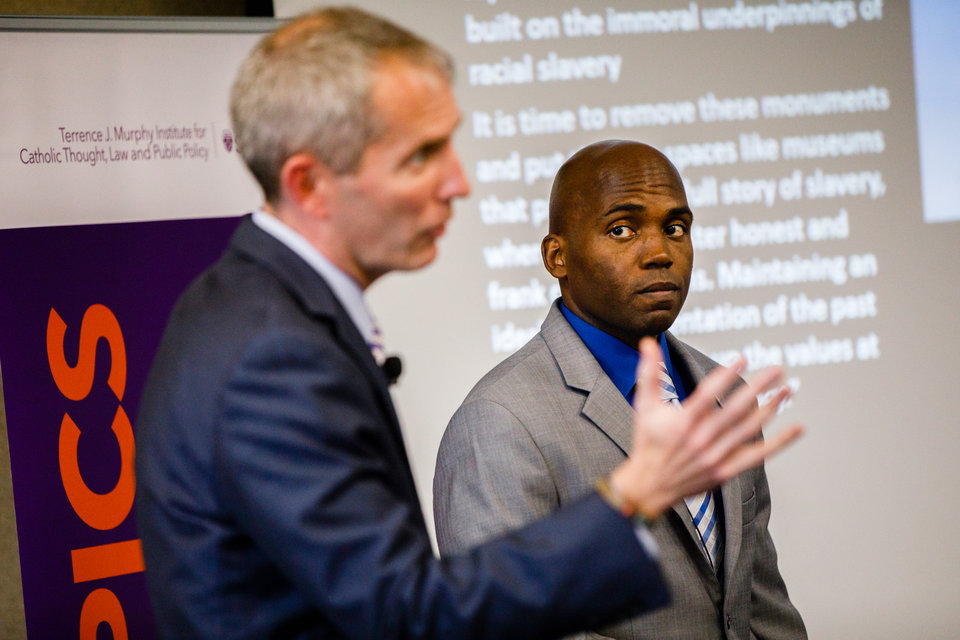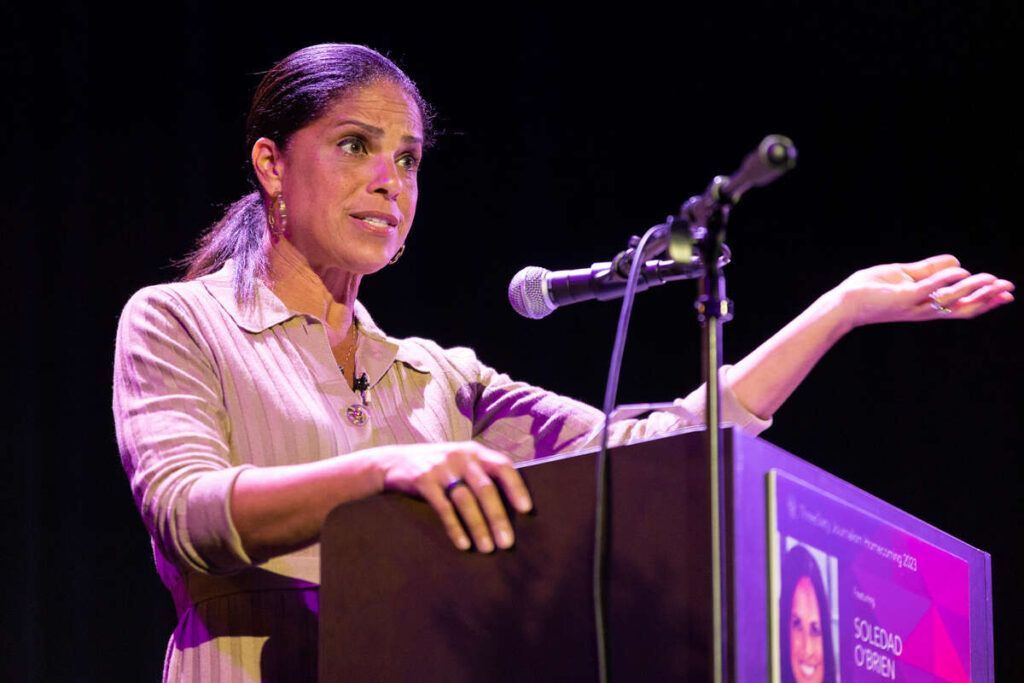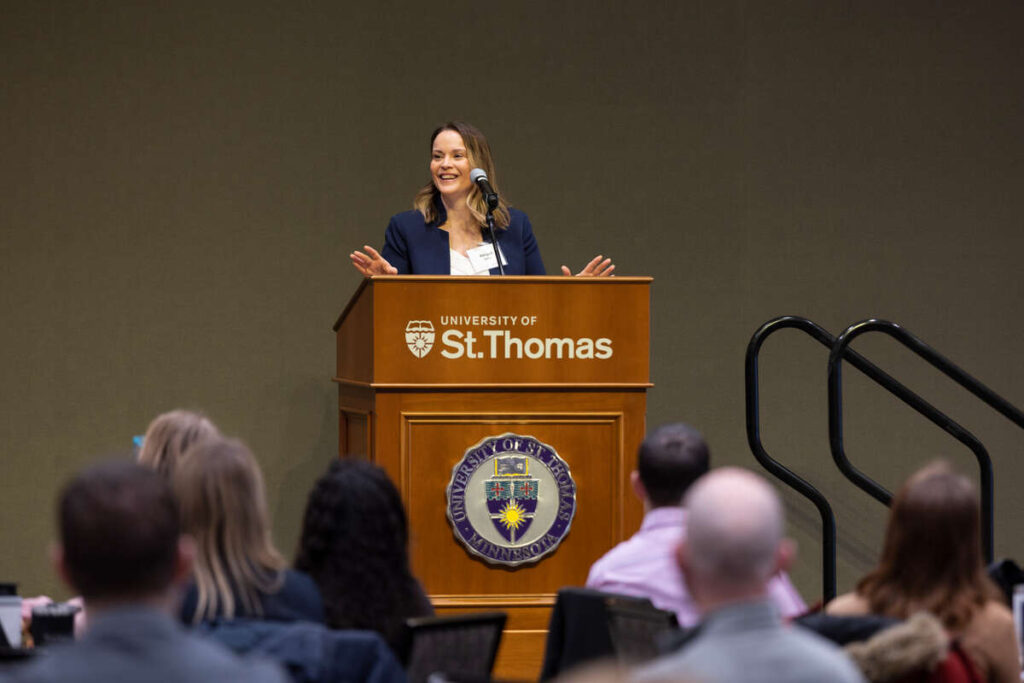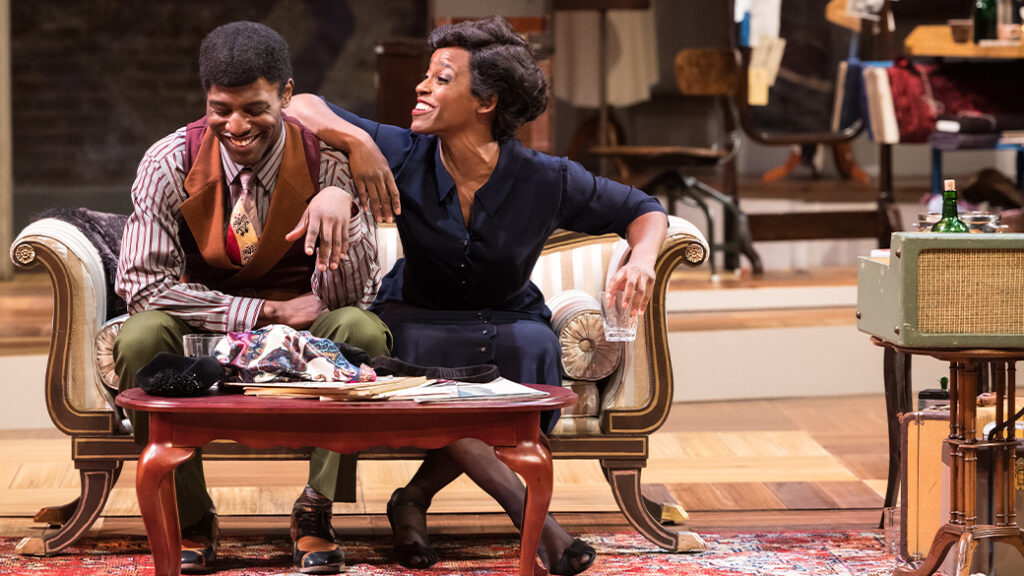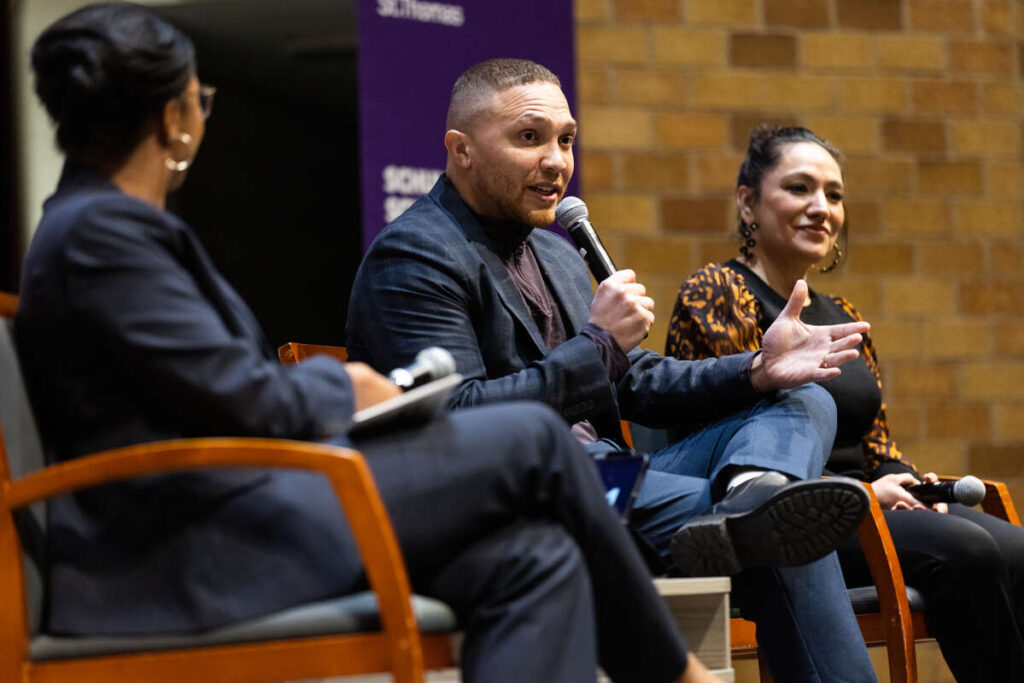"They are symbols of hate, representative of an inglorious past built on ... racial slavery." -@yohuruwilliams
Deans Robert Vischer (School of Law) and Yohuru Williams (College of Arts and Sciences) kicked off the Hot Topics: Cool Talk series with a timely debate on what should be done with Confederate monuments.
Confederate monuments have become a rising point of contention nationally. Tapping into the concerns over racial justice, many are beginning to ask whether the United States should be idolizing the Confederacy, whether the Confederacy can be commemorated without ennobling slavery and whether there's a danger in forgetting history by removing such monuments.
Vischer and Williams tackled the issue in two sessions this week on the Minneapolis and St. Paul campuses. Vischer has researched and written on the topical of civil rights history and legal practice; Williams specializes in 20th century history, the civil rights movement, black power movement, and African diaspora, and has written extensively on those topics.
Here are five observations:
We should consider the historical context of these monuments
Williams went over a brief legacy of the Civil War, highlighting how slaves were freed and granted some Constitutional amendments to protect them, but few, if any, opportunities to better themselves in social, political and economic ways. The shadow of that decision still affects the country today, shown through many segregated factors such as housing, wealth, voting rights and access to education. It's in that context that these Confederate monuments exist.
"We affirm a Confederate victory even as we claim a victory over the legal form of slavery," Williams said. "Confederate monuments and flags remind us of that in a visual and visceral way."
Williams and Vischer also pointed out many Confederate monuments were created and dedicated long after the end of the Civil War and with the intention of idolizing white supremacy.
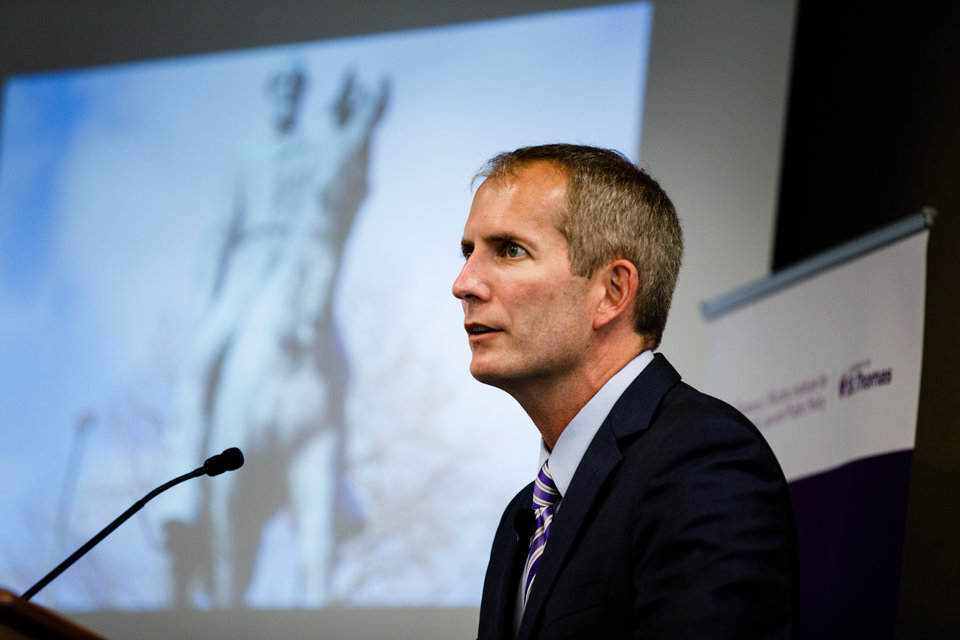
Americans are good at avoiding difficult conversations
Both Williams and Vischer agreed the conversation about race in the United States is deeply lacking.
Vischer argued Americans often prefer the "quick fix" in lieu of actually discussing uncomfortable issues; he emphasized it was important for all, not just Southern, communities to confront their history with race.
"If we see the monuments as the totality of the issue, we are missing the point," Vischer said.
We need to be having those deeper conversations about issues surrounding race
Williams and Vischer also both argued the dilemma surrounding Confederate monuments is an opportunity to talk about the history of race in America in a "fair and honest way," as Williams put it. Williams used that as a stepping point to challenge parts of the population who feel threatened by "others" pushing for their rights.
"Confederate flags and memorials provide aid and comfort to those obstructionists about having a deeper conversation about making the promise of democracy for everyone real," Williams said.
For Vischer, those conversations are vital tools in a community making an active decision about what their values are. He said that process is an act of remembrance and transparency. Williams agreed it would be good to see something like the Truth and Reconciliation Commission in South Africa after apartheid.
Here is the point where Vischer and Williams diverged: Vischer argued that if a community confronted its history, and even if "the statue didn't come down" there was value in the conversation and that living in a pluralist democracy can be messy.
Williams argued that Confederate monuments, just on face value and because of what they represent, deserve to be taken down. If the "conversation is stalled," other methods to move it forward can be used.
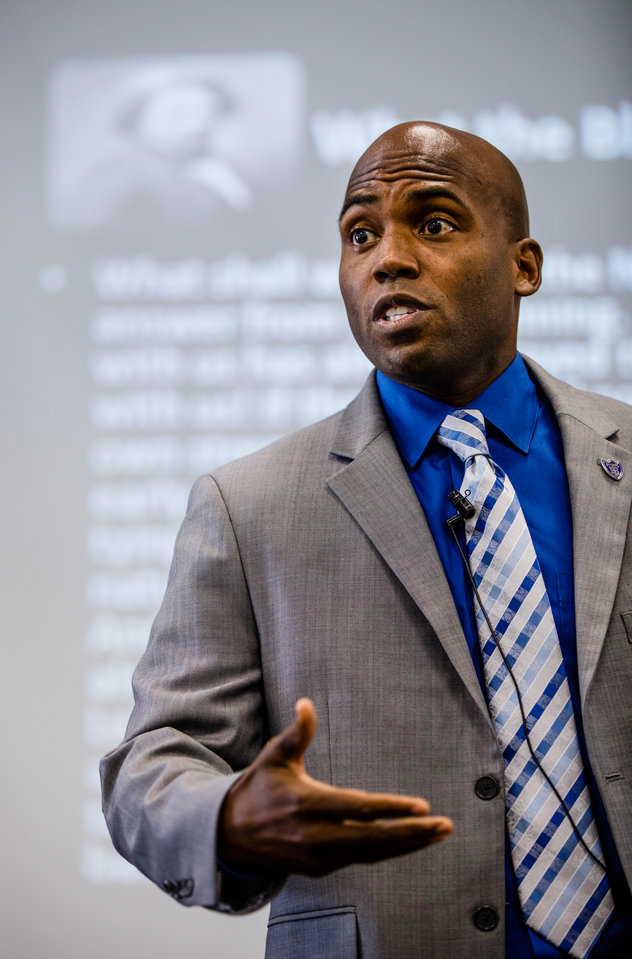 Empathy is a valuable tool in these conversations
Empathy is a valuable tool in these conversations
Much of Vischer's argument centered around the concept of reasoned empathy, which is being capable of listening to another story's even if it disrupts our sense of our own story, while still keeping facts in mind. He contended that in today's society, we often aren't listening to one another, and that not every "truth" is valid as another.
He asked the audience to consider, if they were the parents of a young African-American girl, why we would say we have statues of Robert E. Lee.
"When African-American students say they feel excluded, they are accurately reading the intent of those who dedicated the monument," Vischer said. It is valuable to listen to the stories of people of color in those instances and acknowledge their pain is real and valid.
During the Q&A, Vischer revisited this point in the recent example of Black Lives Matter protestors shutting down I-94. For those who complained about the protest, Vischer said he asked, "How desperate would you have to be to talk walk on I-94 at night in the rain with your children to stop traffic?"
Statues idolize the Confederacy; there are other ways to maintain history
Williams argued all Confederate monuments should be removed, preferably to be put into museums, precisely because museums provide historical context. During the Q&A, he added that battlefields and historical markers can also provide more appropriate context to remember Confederate history without idolizing it.
"Put the Confederate past where it belongs. The Confederate flag, monuments and memorials are not harmless remembrances of an honorable war, but our deepest shame as a nation," Williams said. "They perpetuate the acceptance of a long, ugly history of racial oppression in spite of emancipation. They are symbols of hate, representative of an inglorious past built on the moral underpinnings of racial slavery."
The events were sponsored by the Terrence R. Murphy Institute for Catholic Thought, Law and Public Policy. Hot Topics: Cool Talk is a unique series that fearlessly explores Catholic positions and other perspectives on provocative issues of law and politics.
